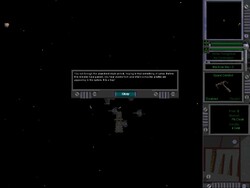RPG Codex Retrospective Interview: Jon Van Caneghem on Might and Magic
RPG Codex Retrospective Interview: Jon Van Caneghem on Might and Magic
Interview - posted by Crooked Bee on Sat 18 August 2012, 19:08:49
Tags: Jon Van Caneghem; Might and Magic; New World Computing; Retrospective InterviewRPG Codex Retrospective Interview: Jon Van Caneghem
RPG Codex Retrospective Interviews is a series that grew out of our fascination with the rich history of computer role-playing games. It focuses on developers and individual titles that made a unique or significant contribution to the genre, aiming to cover a developer's career and approach to RPG design or, respectively, the most relevant aspects of the game in question and the design philosophy behind it.
Today we are happy to present you with a Q&A session with Jon Van Caneghem, the creator of the Might and Magic series and a living legend among CRPG designers. Having started New World Computing as a one-man effort in 1983 from his apartment in Hollywood, CA, Van Caneghem succeeded in turning Might and Magic into a name rivaling the already established Wizardry and Ultima as one of the three most recognized, and most admired, role-playing series of all time. In contrast to Ultima or Wizardry, the first game in the series, Might and Magic: Book One – The Secret of the Inner Sanctum, released in 1986, allowed the player to explore in the first person view not just the dungeons, but the entire large overworld as well, and this kind of immersive freedom of exploration and discovery remained one of the defining features of the series. A company of over 100 people at its peak, New World Computing was sold to 3DO in 1996 to allow Van Caneghem to focus on creative rather than business matters, but in 2003 3DO filed for bankruptcy, which spelled the end of NWC. From 2004, Van Caneghem worked at NCSoft and then Trion Worlds, until in 2009 Electronic Arts hired him as general manager of the Command & Conquer brand.
The Might and Magic franchise, purchased by Ubisoft at an auction in the wake of 3DO's bankruptcy, survives today only through spin-off games such as Heroes of Might & Magic, a famous strategy game series also started by Jon Van Caneghem himself, Dark Messiah of Might and Magic, or Might and Magic: Clash of Heroes.
We are grateful to Jon Van Caneghem for taking time out of his demanding schedule to answer our questions!
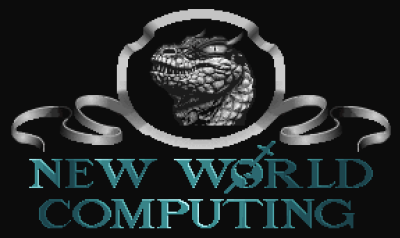
RPG Codex: You started New World Computing in 1983 from your apartment to develop Might and Magic I. How did your decision to develop a computer role-playing game come about? Did you come from pen and paper RPGs?
RPG Codex: As one of the most distinguished game developers, what was the biggest challenge you have faced in your career? Looking back at your career now, is there something you would have done differently?
RPG Codex: How would you describe the way 3DO handled your franchises after you sold NWC to them? What do you think was their reasoning behind it, and why did they not listen to you? In hindsight, do you think something could have been done to keep NWC alive or at least preserve the franchises?
RPG Codex: After NWC closed, you took a complete change in direction, focusing on MMO games. Was it a response to the changing industry, a burnout, or did you simply feel the need to do something different?
RPG Codex: Your classic games, the Might and Magic and Heroes series, were predominantly turn-based. What prompted your interest in doing a real-time strategy game with Electronic Arts? Was joining EA to work on Command & Conquer a hard decision for you to make?
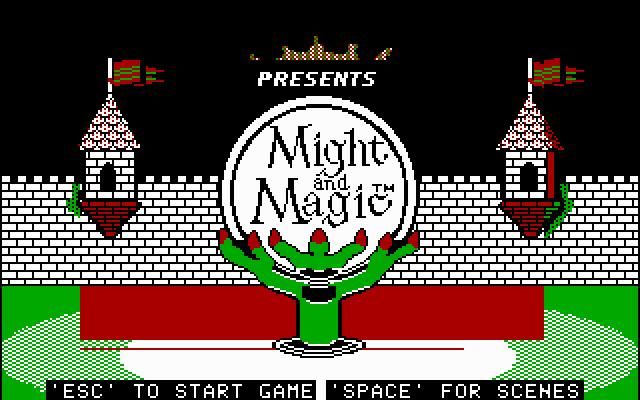
RPG Codex: In what ways did you intend Might and Magic to be different from Wizardry and Ultima, design-wise? What did Wizardry and Ultima lack that you wanted to do in your games?
RPG Codex: What do you feel are the major strengths (and weaknesses, if any) of the Might and Magic games from today's standpoint? Why, in your view, do people still play and enjoy the series after all these years?
RPG Codex: Which is your favorite Might and Magic cRPG, and why?
RPG Codex: How did you create the Might and Magic universe, and what were the main inspirations behind the lore?
RPG Codex: Regarding the Might and Magic lore, what gave you the idea to give prominence to the mingling of sci-fi and standard fantasy, when other series (such as Ultima) had dropped it? Were there specific games at the time that inspired you to do this kind of thing?
RPG Codex: Might and Magic II was a very polarizing game back then; it got some great reviews, and some really harsh ones (most memorable being Scorpia's for CGW). How did you feel about this polarization? Did you feel vindicated when Might and Magic III was very well received by pretty much everyone?
RPG Codex: Speaking of Might and Magic III, at first glance the game looks very similar to Might and Magic I and II, but the underlying mechanics in world-building and combat are vastly different. Were you consciously trying to evolve the series while keeping the elements that everybody loved about it intact, or did that just happen?
RPG Codex: Might and Magic III drops several hints of a old war between the Ancients and the Creators; did you already have the Ancients/Kreegan war in mind from Might and Magic VI-VIII, or did you just leave that as a potential plot hook to use later on?
RPG Codex: A Might and Magic III modder has discovered a whole island in the game's resources that was left unused in the game. Why did you take it out for release? Was it due to memory or time constraints?
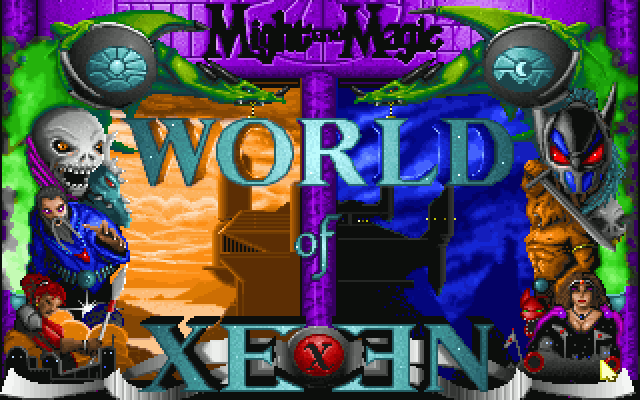
RPG Codex: What gave you an idea to bundle Might and Magic IV and V together into World of Xeen in such a unique way, and why did you not handle any other games in the series in the same manner? To elaborate, usually expansion packs added something "on the side", but with World of Xeen you could tell that, when Clouds of Xeen shipped, all the connection points were already there.
RPG Codex: How did the decision to add real-time combat to the series come about and what was the rationale behind it? In retrospect, are you perfectly happy with that decision?
RPG Codex: In your 2004 Computer Gaming World interview, when asked about Might and Magic IX, you said that, if it had been up to you, the game "would have never shipped." What about Might and Magic VIII? How do you feel about the game and the poor reception it got?
RPG Codex: How did the Heroes of Might and Magic series originate? Why did you decide to do a spiritual successor to King's Bounty?
RPG Codex: Apart from Might and Magic, Heroes and King's Bounty, NWC developed such games as Nuclear War, Tunnels and Trolls, Planet's Edge, Spaceward Ho!, Iron Cross, and Zephyr. What do you think of these games today, and which one(s) do you feel most proud of?
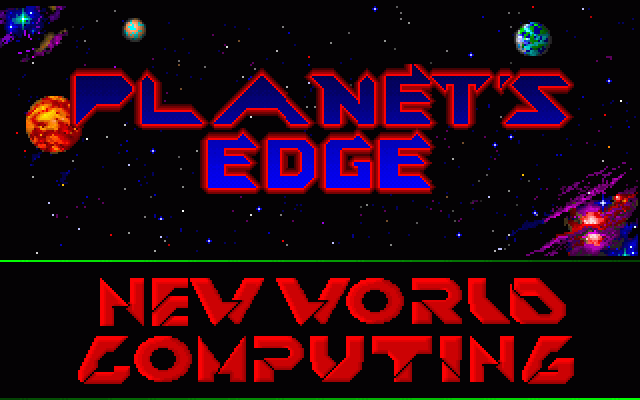
RPG Codex: I have a separate question about Planet's Edge, which is one of my favorite space exploration RPG-likes. What made the concept stand out to you, and how do you feel about the game today?
RPG Codex: Were there any role-playing games you designed that failed to see the light of day for some reason? If there were, is there anything you can share about them?
RPG Codex: Are there some kind of extremely obscure trivia or easter eggs in the Might and Magic games that nobody knows about? (Aside from the Star Trek references, of course.)
RPG Codex: In your view, what makes a good role-playing game and what are the defining elements of the genre? Is it combat mechanics, character development rules, exploration, story, puzzles, or something else? Does what you are looking for in a cRPG now differ from what you were looking for back when you designed the Might and Magic games?
RPG Codex: What, to you, makes a "deep" strategy game? Where do you see the line between the two genres, strategy games and cRPGs?
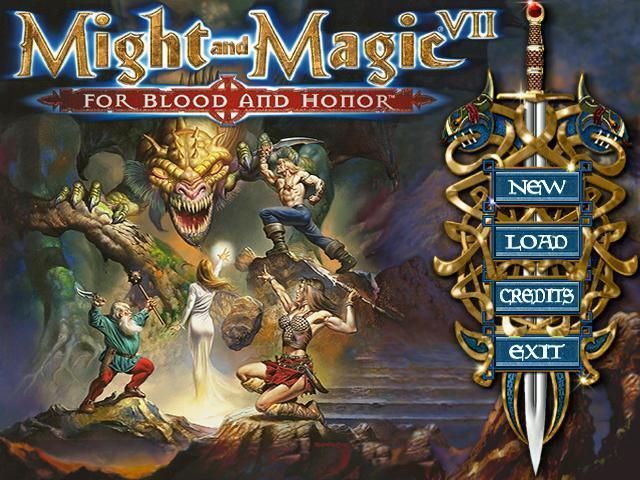
RPG Codex: An important part of Might and Magic was its puzzles. Today, however, it seems that elaborate puzzles have no place in cRPGs. Why do you think this is? Do you consider them a viable element in modern game design?
RPG Codex: Today's cRPGs tend to be developed with maximum accessibility in mind. A lot of developers seem to discourage experimentation and exploration by introducing features such as a quest compass and unkillable NPCs. Might and Magic, however, did not hold your hand, and it was easy to miss out on large chunks of content. What is your stance on this today?
RPG Codex: What do you think about the current state of the cRPG industry? Are there certain trends that are worrisome to you or, on the contrary, that you especially appreciate?
RPG Codex: What new things would you want to see introduced to cRPGs, or maybe old things reintroduced? Any thoughts or predictions as to the future of the genre?
RPG Codex: After the recent Kickstarter success stories of Tim Schafer and Brian Fargo, what do you think of crowdfunding as a way of independent video game publishing? Would you consider turning to Kickstarter to fund a new turn-based cRPG in the vein of Might and Magic or a new Heroes(-like) game? Do you think such games still have a market today?
Thank you for your time.
Special thanks are due to Charles-cgr, commie, DaveO, Jaesun, Luzur, Zed and especially Sceptic for their suggestions and feedback.
RPG Codex Retrospective Interviews is a series that grew out of our fascination with the rich history of computer role-playing games. It focuses on developers and individual titles that made a unique or significant contribution to the genre, aiming to cover a developer's career and approach to RPG design or, respectively, the most relevant aspects of the game in question and the design philosophy behind it.
Today we are happy to present you with a Q&A session with Jon Van Caneghem, the creator of the Might and Magic series and a living legend among CRPG designers. Having started New World Computing as a one-man effort in 1983 from his apartment in Hollywood, CA, Van Caneghem succeeded in turning Might and Magic into a name rivaling the already established Wizardry and Ultima as one of the three most recognized, and most admired, role-playing series of all time. In contrast to Ultima or Wizardry, the first game in the series, Might and Magic: Book One – The Secret of the Inner Sanctum, released in 1986, allowed the player to explore in the first person view not just the dungeons, but the entire large overworld as well, and this kind of immersive freedom of exploration and discovery remained one of the defining features of the series. A company of over 100 people at its peak, New World Computing was sold to 3DO in 1996 to allow Van Caneghem to focus on creative rather than business matters, but in 2003 3DO filed for bankruptcy, which spelled the end of NWC. From 2004, Van Caneghem worked at NCSoft and then Trion Worlds, until in 2009 Electronic Arts hired him as general manager of the Command & Conquer brand.
The Might and Magic franchise, purchased by Ubisoft at an auction in the wake of 3DO's bankruptcy, survives today only through spin-off games such as Heroes of Might & Magic, a famous strategy game series also started by Jon Van Caneghem himself, Dark Messiah of Might and Magic, or Might and Magic: Clash of Heroes.
We are grateful to Jon Van Caneghem for taking time out of his demanding schedule to answer our questions!

RPG Codex: You started New World Computing in 1983 from your apartment to develop Might and Magic I. How did your decision to develop a computer role-playing game come about? Did you come from pen and paper RPGs?
Jon Van Caneghem: I had been playing board games my entire life and then found paper RPGs like D&D. As much as I enjoyed the Saturday D&D / board games, I wanted to play more often and faster. Once I was introduced to computer games, besides being addicted to playing non-stop : ), my mind went wild with the future possibilities for games. Given my background and knowledge of games and a passion for math and programming, I convinced myself that nothing was going to stop me from designing and creating computer games!
RPG Codex: As one of the most distinguished game developers, what was the biggest challenge you have faced in your career? Looking back at your career now, is there something you would have done differently?
JVC: The biggest challenge for me was being the designer / creator of the games and the CEO of the company. This dual role always created personal conflict. On the one hand I wanted to make every game perfect, more features, better polish… and on the other I had to pay the bills. My ongoing compromise was: if I stayed profitable, I will always be able to make another game.
Doing something differently, would have to be not giving up programming. In the early days I did all the coding, but as the projects got bigger I had to focus on overseeing the teams. I really enjoyed programming.
Doing something differently, would have to be not giving up programming. In the early days I did all the coding, but as the projects got bigger I had to focus on overseeing the teams. I really enjoyed programming.
RPG Codex: How would you describe the way 3DO handled your franchises after you sold NWC to them? What do you think was their reasoning behind it, and why did they not listen to you? In hindsight, do you think something could have been done to keep NWC alive or at least preserve the franchises?
JVC: Initially the relationship was great, I was able to spend more time on development and 3DO handled many of the administrative issues that took up a lot of my time. In fact the first couple of years, we did some of our best work with Heroes II and Might and Magic VI.
Later, when 3DO started to have financial difficulties, the relationship became strained and things went downhill from there. I did try at the end to keep NWC alive, we had several offers to buy my division away from 3DO, but The Company did not want to sell off the pieces in the hope to sell the entire entity. Unfortunately that didn’t happen.
Later, when 3DO started to have financial difficulties, the relationship became strained and things went downhill from there. I did try at the end to keep NWC alive, we had several offers to buy my division away from 3DO, but The Company did not want to sell off the pieces in the hope to sell the entire entity. Unfortunately that didn’t happen.
RPG Codex: After NWC closed, you took a complete change in direction, focusing on MMO games. Was it a response to the changing industry, a burnout, or did you simply feel the need to do something different?
JVC: Actually, one of the main reasons I sold to 3DO was to create online RPG’s. They had a game called Meridian 59 that inspired me. I was confident that the future of RPG’s was online multiplayer. Soon after the acquisition I started designing Might and Magic Online! This was well before any of the modern MMORPG’s came into being.
I had designs that at the time the “MUD” experts told me would never work, but I was confident I could create an online multiplayer RPG that had all the features and quality of standalone games that you could play continuously with other players around the world. Might and Magic online would have been the first of the modern MMORPGs! After about 9 months of development, 3DO decided that it was going to be too expensive to create and canceled it.
I had designs that at the time the “MUD” experts told me would never work, but I was confident I could create an online multiplayer RPG that had all the features and quality of standalone games that you could play continuously with other players around the world. Might and Magic online would have been the first of the modern MMORPGs! After about 9 months of development, 3DO decided that it was going to be too expensive to create and canceled it.
RPG Codex: Your classic games, the Might and Magic and Heroes series, were predominantly turn-based. What prompted your interest in doing a real-time strategy game with Electronic Arts? Was joining EA to work on Command & Conquer a hard decision for you to make?
JVC: I actually was considering moving Heroes into an RTS, but I decided to keep it pure by staying turn based. I did have designs for a different RTS game but we never had the resources to build it.
I have always been a fan of C&C so taking over the franchise was exciting and an honor.
I have always been a fan of C&C so taking over the franchise was exciting and an honor.

RPG Codex: In what ways did you intend Might and Magic to be different from Wizardry and Ultima, design-wise? What did Wizardry and Ultima lack that you wanted to do in your games?
JVC: Wizardry and Ultima were great inspirations for me. But I wanted to make my own vision for a CRPG. I wanted more of an open world feel with quests, puzzles and an emphasis on exploration and discovery. I wanted party based tactical combat, tons of magic items to find and an ever increasing feeling of power as you leveled your characters. Most of all I wanted players to feel free to experiment with all the "tools" I put in the game so they could enjoy playing any way they wanted to.
RPG Codex: What do you feel are the major strengths (and weaknesses, if any) of the Might and Magic games from today's standpoint? Why, in your view, do people still play and enjoy the series after all these years?
JVC: I have always felt the game systems I created were very robust, probably the biggest strength of the games and still hold up today. Plus the free form nature of the game worlds are very appealing. The biggest weakness came when we had to switch to true 3d engine; we were behind the technology curve at that point, it made it difficult to develop and stay visually competitive.
RPG Codex: Which is your favorite Might and Magic cRPG, and why?
JVC: Although I have a special fondness to MM1 since I did the entire game myself, I would still have to say World of Xeen was my favorite and the pinnacle of the game systems, universe and conclusion to the original story.
RPG Codex: How did you create the Might and Magic universe, and what were the main inspirations behind the lore?
JVC: Well, a mixture of historic mythology, fantasy / sci-fi movies and books and many paper RPG modules. Numerous characters and stories came from several of my own D&D campaigns and characters from years past.
RPG Codex: Regarding the Might and Magic lore, what gave you the idea to give prominence to the mingling of sci-fi and standard fantasy, when other series (such as Ultima) had dropped it? Were there specific games at the time that inspired you to do this kind of thing?
JVC: I have always been a big sci-fi fan as well as fantasy. Arthur C. Clarke coined the phrase "any sufficiently advanced technology is indistinguishable from magic." This idea plus a Star Trek episode "For the world is hollow and I have touched the sky" was the basis for the original M&M Lore. But I didn't want any sci-fi to get into the fantasy world until the very end of the game. I was hoping to create a more thought provoking ending like an episode of the old "Twilight Zones" and not be intrusive throughout the fantasy game.
RPG Codex: Might and Magic II was a very polarizing game back then; it got some great reviews, and some really harsh ones (most memorable being Scorpia's for CGW). How did you feel about this polarization? Did you feel vindicated when Might and Magic III was very well received by pretty much everyone?
JVC: Ohhh... Scorpia LOL. : )
I know we made a great game and she only gave it a bad review because of the "real time puzzle" at the end. Being really into puzzles, I wanted something cool for the finale of the game. At the time was fascinated with cryptology, so I decided to put in a cryptogram and made it real time just to make things exciting.
I'm very proud of that game, we made a lot of RPG firsts with it, especially in Auto Mapping. And yes, the reviews for MM3 was quite the vindication!
I know we made a great game and she only gave it a bad review because of the "real time puzzle" at the end. Being really into puzzles, I wanted something cool for the finale of the game. At the time was fascinated with cryptology, so I decided to put in a cryptogram and made it real time just to make things exciting.
I'm very proud of that game, we made a lot of RPG firsts with it, especially in Auto Mapping. And yes, the reviews for MM3 was quite the vindication!
RPG Codex: Speaking of Might and Magic III, at first glance the game looks very similar to Might and Magic I and II, but the underlying mechanics in world-building and combat are vastly different. Were you consciously trying to evolve the series while keeping the elements that everybody loved about it intact, or did that just happen?
JVC: At that time I was starting to understand that a sequel could actually be harder to make, given the expectations from a previous success. It was a very conscious decision to make big innovations in MM3. We really went all out with MM3!
Quite ironically it was the smallest seller of all the M&M games (mostly because of platform changes), but won far more awards than any other M&M.
Quite ironically it was the smallest seller of all the M&M games (mostly because of platform changes), but won far more awards than any other M&M.
RPG Codex: Might and Magic III drops several hints of a old war between the Ancients and the Creators; did you already have the Ancients/Kreegan war in mind from Might and Magic VI-VIII, or did you just leave that as a potential plot hook to use later on?
JVC: I had a brief outline that I knew we could build on, but we didn't flush it out until later games.
RPG Codex: A Might and Magic III modder has discovered a whole island in the game's resources that was left unused in the game. Why did you take it out for release? Was it due to memory or time constraints?
JVC: It still amazes me on how many things are forgotten about during development, only to be discovered later by players!

RPG Codex: What gave you an idea to bundle Might and Magic IV and V together into World of Xeen in such a unique way, and why did you not handle any other games in the series in the same manner? To elaborate, usually expansion packs added something "on the side", but with World of Xeen you could tell that, when Clouds of Xeen shipped, all the connection points were already there.
JVC: I thought to myself as a player, what would be cool if a new version of this game comes out, so I came up with the crazy combining scheme that would be magical to the consumer. This was a monumental task especially in those days. But I thought it was an amazing idea and we keep working on the concept until we figured out how to do it. Thank you for recognizing that feature, we were very proud of that accomplishment and to this day I don’t think anyone has repeated it.
RPG Codex: How did the decision to add real-time combat to the series come about and what was the rationale behind it? In retrospect, are you perfectly happy with that decision?
JVC: Might and Magic VI was a new era in CRPGs, we added a 3d engine with the ability to play in turn based mode or real-time in the same engine! We saw the need for real time to create a living world, but wanted our player base that wasn’t part of the "twitch" generation to continue to enjoy the game. Besides it gave you time to think when you switched to turn base, and strategy was always a big part of the Might and Magic games.
RPG Codex: In your 2004 Computer Gaming World interview, when asked about Might and Magic IX, you said that, if it had been up to you, the game "would have never shipped." What about Might and Magic VIII? How do you feel about the game and the poor reception it got?
JVC: Although MM8 had some fun things in it, the engine and design had run it coarse with MM6+7. We needed new tech and more time to make a better game, but pressures from 3DO required us to release projects at a much faster pace than we wanted.
RPG Codex: How did the Heroes of Might and Magic series originate? Why did you decide to do a spiritual successor to King's Bounty?
JVC: I loved strategy games and Kings Bounty was my first attempt at one. After numerous inquiries and fans asking for more, I decided to really come up with something bigger. So after a lot of iteration, Heroes was born!
RPG Codex: Apart from Might and Magic, Heroes and King's Bounty, NWC developed such games as Nuclear War, Tunnels and Trolls, Planet's Edge, Spaceward Ho!, Iron Cross, and Zephyr. What do you think of these games today, and which one(s) do you feel most proud of?
JVC: I enjoyed all of them and I’m very proud of all the teams that made them. It’s difficult to choose just one, but I could say that we spent many late nights playing Spaceward Ho! I still remember people yelling from other offices “EYT!!!” (End Your Turn, so the game could progress).

RPG Codex: I have a separate question about Planet's Edge, which is one of my favorite space exploration RPG-likes. What made the concept stand out to you, and how do you feel about the game today?
JVC: I played a lot of Star Fleet Battles, a fairly complicated board game at the time, and we thought the combination of fun strategic ship combat and an RPG would be awesome. I think it was over ambitious for the time but would definitely be a cool project today.
RPG Codex: Were there any role-playing games you designed that failed to see the light of day for some reason? If there were, is there anything you can share about them?
JVC: I wanted to make a 3D first person action RPG, something like Might and Magic meets Diablo. After lengthy development we had problems with the engine and tech would not support the game design, so it was abandoned. But we needed a game to ship so we salvaged what we could and quickly came up with "Legends of Might and Magic," a fantasy FPS.
RPG Codex: Are there some kind of extremely obscure trivia or easter eggs in the Might and Magic games that nobody knows about? (Aside from the Star Trek references, of course.)
JVC: Wow, ok, so many games over so many years, there are tons. How about these 2 of the top of my head:
- "Sheltem" the main protagonist in the first few Might and Magic’s was named after my dog. He was a miniature Collie called a Sheltie. When anything was awry around the house I would always say it was "Sheltem"; that was his mischievous nick name.
- "Crag Hack" was one of my most played paper AD&D characters. He was a LVL 16 Human Neutral Fighter, 18/00 strength, used 2 one handed swords, acquired Psionics and among other things one of his hands was replaced with the "Hand of Vecna"... it’s a long story. : )
JVC: I would say all the above, my preference is for open world, freedom to explore and let players be creative. Strategy and great games systems is what I look for the most.
RPG Codex: What, to you, makes a "deep" strategy game? Where do you see the line between the two genres, strategy games and cRPGs?
JVC: The lines are very blurry and many games have much overlap. In general Deep strategy for me is more of a macro view of a game world, where CRPG’s are more personal where you are the character or party.

RPG Codex: An important part of Might and Magic was its puzzles. Today, however, it seems that elaborate puzzles have no place in cRPGs. Why do you think this is? Do you consider them a viable element in modern game design?
JVC: I think puzzles are a difficult art to do in games, especially now with the games being required to work in many different languages and countries. I still think they are very viable, just hard to do.
RPG Codex: Today's cRPGs tend to be developed with maximum accessibility in mind. A lot of developers seem to discourage experimentation and exploration by introducing features such as a quest compass and unkillable NPCs. Might and Magic, however, did not hold your hand, and it was easy to miss out on large chunks of content. What is your stance on this today?
JVC: I still feel the same, I have always wanted players to enjoy the game the way they want too and not be forced to play the way the developer wants them too.
RPG Codex: What do you think about the current state of the cRPG industry? Are there certain trends that are worrisome to you or, on the contrary, that you especially appreciate?
JVC: Besides stand alone CRPGs being completely overrun by MMOs, the move towards "movie games" is worrisome to me; I enjoy game systems, open worlds and exploration. I like to play games, not watch them.
RPG Codex: What new things would you want to see introduced to cRPGs, or maybe old things reintroduced? Any thoughts or predictions as to the future of the genre?
JVC: I still think there is a big market for sand box RPGs. It’s obvious from the success of games like Skyrim and Minecraft that consumers feel the same way as both have sold very well. I’m convinced there is room in the online space for more sandbox games, but they need to be focused on being games first instead of just being virtual worlds.
RPG Codex: After the recent Kickstarter success stories of Tim Schafer and Brian Fargo, what do you think of crowdfunding as a way of independent video game publishing? Would you consider turning to Kickstarter to fund a new turn-based cRPG in the vein of Might and Magic or a new Heroes(-like) game? Do you think such games still have a market today?
JVC: I think the Kickstarter program is great and I hope to see many great new games because of it. There’s always a place for good games—it just matters what the consumer expectation is. Turn based games like Advance Wars and Final Fantasy Tactics were successes on DS. Looking forward, those games could easily be successful on everything from PCs to mobile devices to tablets, so yes, they still have a market today.
Thank you for your time.
Special thanks are due to Charles-cgr, commie, DaveO, Jaesun, Luzur, Zed and especially Sceptic for their suggestions and feedback.
There are 63 comments on RPG Codex Retrospective Interview: Jon Van Caneghem on Might and Magic











